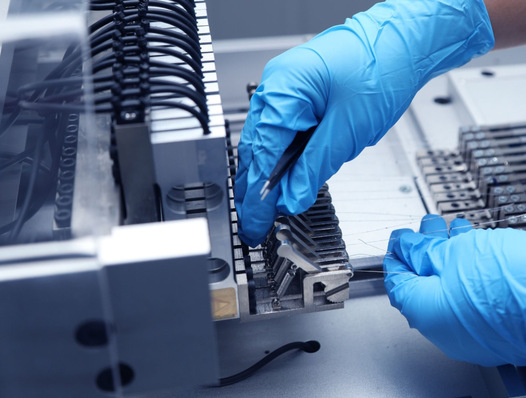Solar panels and solar generators do not require maintenance. This myth has been around for years, but the truth is slightly different. Solar generators consist of solar modules, which in turn are covered by large panes of glass. Depending on the place and environment, the glass fronts need to be cleaned – sometimes once every few years, sometimes every spring, sometimes every couple of weeks, or never at all. This is a matter of how much dirt would harm the expected solar yield.
These are the 7 expert tips to clean the solar panels in the right way:
1. Have an inspection every spring, even if there is no visible damage!
2. Ascertain what kind and how much dirt there is!
3. Solar panels are not like windows!
4. Everyday measures will not do!
5. Correctly secure any workers on the roof!
7. Leave the trained technician to do the work!
1.Have an inspection every spring, even if there is no visible damage!
Every solar generator – no matter if it is mounted on the ground, the roof or the side of the house – should be inspected by a specialist early in the spring. The electrical data (current-voltage-curve) needs to be verified, and a technician should check to see if the lightning protection is still intact. A visual inspection of the installation is important to get an impression of what the current state of affairs is.
Strong winds or ice during the winter can have damaged or moved the generator, and an on-site inspection can easily reveal that. It is also important that the installation’s reference sensor is accessible and clean. Bolts and plugs need to be checked. Screws should be tight, also plugs – did water get into them? During the inspection, there should be at least a random check if the panels’ junction boxes are undamaged.
As part of such an inspection, a single glance will show if the installation is dirty or not. If and how much any dirt diminishes the solar electricity yield, can easily be seen from the electrical data. Based on that, the technician and the customer can jointly decide if cleaning is necessary. Back to top
2.Ascertain what kind and how much dirt there is!
Whether solar panels become dirty depends on the local conditions. Under normal circumstances there should not be a problem, because the panels do not get dirty enough. If there is a saw mill or a cowshed in the vicinity, it is possible that substantial amounts of dirt accumulate on the panels. This can come from fine dust (saw mill), which when it rains combines with the rainwater to become a slimy, sticky goo.
This then dries and heats up further as the solar panels are in operation. Because the dirty parts are darker, they heat up even more then the panels would otherwise. Dust and dirt primarily accumulate along the edge of the panels’ frame – on pitched roofs, this is at the bottom.
As a result of the emanations of pigs, cows or poultry, livestock farming releases a lot of ammonia, which combines with the dust in the air and settles on the solar panels as a thick, solid film. This in turn pretty much attracts airborne dust. Water alone will do little to get rid of it. Nearby production industry can also create lots of dirt, for instance dust from a foundry or emissions from power plant.
Solar generators do not require maintenance. This myth has been around for years, but the truth is slightly different. Solar generators consist of solar panels, which in turn are covered by large panes of glass. Depending on the place and environment, the glass fronts need to be cleaned – sometimes once every few years, sometimes every spring, sometimes every couple of weeks, or never at all. This is a matter of how much dirt would harm the expected solar yield. Back to top
3.Solar panels are not like windows!
Many owners of solar installations deal with the dirt on their solar panels in a fairly haphazard way: with water, a mop and a brush. But a solar panel is not a window or the kitchen table! Make no mistake: The panels are covered by glass, but it usually is a very specialised kind of glass. It is often coated in an invisible and extremely thin anti-reflective layer.
By simply wiping or brushing dust away, you risk voiding the manufacturer’s warranty. They usually give quite specific instructions on how to clean their solar panels. Sometimes these instructions can be very meticulous, as if calling for you to clean your panels with a toothbrush.
For that reason, it is best to simply leave the cleaning to the technician. He ensures that your panels are cleaned – while keeping the warranty valid. If necessary, he may even consult with and obtain the approval of the manufacturer. Back to top
4.Everyday measures will not do!
In most cases, household cleaning agents will not be enough to clean soiled panels. That requires demineralised, practically distilled water and special solvents which leave no residues. A solar generator can only be cleaned once they have cooled down – in the late evening or morning before the sun has become powerful.
Otherwise, the panels become too warm and the cleaning agents leave unsightly stains, which also attract more dirt. Also, shocking panels with cold water as they are exposed to the sun should be avoided at all cost. Such thermal stresses can destroy the glass as well as the solar cells. Many solar panels are covered in sensitive antireflective coatings – one more reason to leave it to the professionals. Back to top
5.Correctly secure any workers on the roof!
There is another reason to leave cleaning the panels to the experts: Solar panels are usually mounted to the roof. As a rule, work on the roof has to be secured by putting up netting or even scaffolding around the house. The cleaning worker must be secured with personal protective equipment as well as by ropes, railing, netting and sturdy ladders.
Cleaning can be done at the same time as the annual inspection in the spring, as long as the technician already has safety equipment up to check on the installation and, if necessary, replace parts. Do not underestimate: Solar installations are electrical systems. If they come into contact with water in an improper way, chiefly in case of hidden defects in the plugs and wiring, there is the danger of electric shocks or short circuits. So let an expert do it!
And another thing: Even though solar panels look robust, you should neither walk nor kneel on them. There are fragile solar cells under the covering glass plate that can easily break if the glass bends inward too much. The resulting fractures are often microscopic and cannot be seen by the naked eye. Back to top
6.Document the cleaning!
The results of the annual and other cleaning sessions need to be logged in your installation’s documentation. At the end of the cleaning, you should recalibrate the yield data. This will help you to see if the cleaning has actually improved the solar yield. It also allows you exclude other reasons why the yield may have been poor, such as technical defects in the wiring. Back to top
7.Leave the trained technician to do the work!
If you were satisfied with company that installed your solar generator, you should make a long-term maintenance contract with them, which should also include occasional cleaning. Quality-minded installation companies will offer that anyway, so you do not have to mark your calendar every time. A good installation company will continuously keep an eye on the yield data of your solar generator, often remotely via the Internet. That will also show them whether dirt is becoming an issue.
The spring inspection is also a good opportunity to compare the previous year’s yields to the yield forecast. Following the inspection, you and the technician might discuss over a cup of coffee, whether adding a solar battery is a good idea, or how you could use more of the solar electricity your house produces. If you have a solar installation but not yet anyone to do maintenance on it, you should urgently go out and find a company that you trust. (HS/HCN) Back to top
Stay informed, get our free newsletter twice a week, register here
More useful information:
http://www.pveurope.eu/News/Solar-Generator/Analyze-pollution-of-solar-modules-exactly







